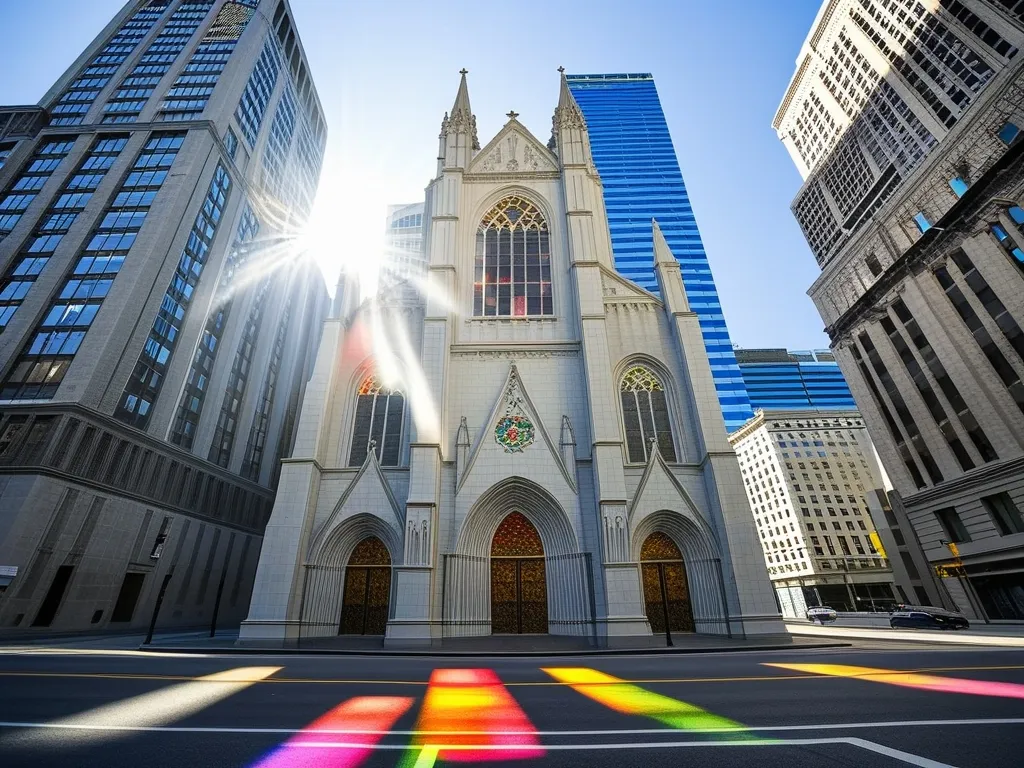As we navigate the complex interplay between finance, investment, politics, world history, and religion, it becomes increasingly clear that religious institutions play a significant, yet often overlooked, role in shaping global financial landscapes. This intersection is not just about the obvious donations and charity work; it delves deep into investment strategies, ethical debates, and the subtle yet powerful influence these institutions wield.
Historical Roots: The Vatican’s Financial Empire
To understand the modern dynamics, we need to look back at historical examples. The Vatican, for instance, has been a major player in global finance for centuries. The Vatican Bank, officially known as the Institute for the Works of Religion (IOR), has managed the financial assets of the Catholic Church since its establishment in 1942. This bank has been involved in various investment activities, from real estate to stocks, often shrouded in secrecy. The Vatican’s financial prowess is not just about managing its own wealth but also about influencing economic policies and markets.
Religious Investments in the Modern Era
Fast forward to the present, and we see that many religious institutions are actively participating in the stock market. For example, the Church of England has a significant investment portfolio managed by its Church Commissioners, which includes stakes in companies like Google, Amazon, and even some oil giants. These investments are not merely passive; they often come with active engagement, where the church uses its shareholder influence to push for ethical and sustainable practices.
Ethical Dilemmas and Investment Strategies
The intersection of faith and finance raises several ethical questions. How do religious institutions reconcile their spiritual values with the sometimes morally ambiguous world of finance? The answer lies in their investment strategies. Many religious funds adopt socially responsible investing (SRI) or environmental, social, and governance (ESG) criteria. For instance, the Presbyterian Church (USA) has a detailed policy on socially responsible investing, which guides its investments to align with its moral and ethical principles.
Political Influence Behind the Scenes
Religious institutions often wield significant political power, which can have far-reaching implications for economic policies. In the United States, for example, the influence of evangelical groups on economic policies is well-documented. These groups can shape public opinion and policy decisions, particularly in areas like taxation, welfare programs, and international trade. The Catholic Church, with its global reach, has also been instrumental in shaping economic policies in various countries, often advocating for social justice and equitable distribution of wealth.
Historical Ties Between Religion and Economic Policies
The relationship between religion and economic policies is not new. In 19th-century America, Protestant churches played a crucial role in promoting capitalism and financial development. They competed not just for adherents but also for financial resources, presenting themselves as safe and profitable investments. This competition led to the adoption of new financial methods and the integration of religious institutions into the nascent capital markets.
In Britain, the evangelical movement had a profound impact on economic policies during the Industrial Revolution. Evangelical leaders advocated for moral reforms that included better working conditions and fair wages, influencing the development of labor laws and social welfare policies.
Global Financial Markets and Religious Diversity
The impact of religion on financial markets is not limited to Western societies. In Islamic countries, for example, financial institutions operate under Sharia law, which prohibits the collection and payment of interest. This has led to the development of Islamic banking and finance, which is now a significant segment of the global financial market. Islamic finance emphasizes ethical investing, risk sharing, and the prohibition of speculative transactions, offering a unique alternative to conventional banking.
Modern Trends: Digital Transformation and Community Engagement
In the digital age, religious institutions are adapting to new trends to remain relevant. Online religious services and community building initiatives have become commonplace. These digital platforms not only facilitate worship but also serve as tools for fundraising and financial engagement. For instance, many churches now use online platforms to manage donations, sell religious goods, and even invest in digital assets.
Youth Engagement and Sustainable Practices
Youth engagement is another critical area where religious institutions are making a financial impact. By launching initiatives that appeal to younger generations, these institutions are ensuring their financial sustainability. For example, some churches are adopting sustainable practices and environmental initiatives, which not only align with the values of younger members but also attract ethical investors.
Crisis Response and Social Services
Religious institutions have always been at the forefront of crisis response and social services. During economic downturns or natural disasters, these institutions often provide critical support, which in turn can stabilize local economies. The financial resources mobilized by religious organizations during such times can be substantial, demonstrating their capacity to act as economic stabilizers.
Conclusion
The relationship between religion and finance is multifaceted and deeply intertwined. From historical instances of religious institutions managing vast financial empires to modern-day ethical investing and political influence, the impact of faith on finance is undeniable. As we continue to navigate the complexities of global financial markets, understanding the role of religious institutions is crucial. It is a story of how divinity meets dollars, shaping economies, policies, and societies in ways both visible and invisible.
In this intricate dance between faith and finance, we find a narrative that is both fascinating and complex. It is a reminder that the worlds of finance, investment, politics, world history, and religion are not separate entities but interconnected threads that weave the fabric of our global society. As we move forward, it will be interesting to see how these institutions continue to evolve and influence the financial landscapes of the future.






